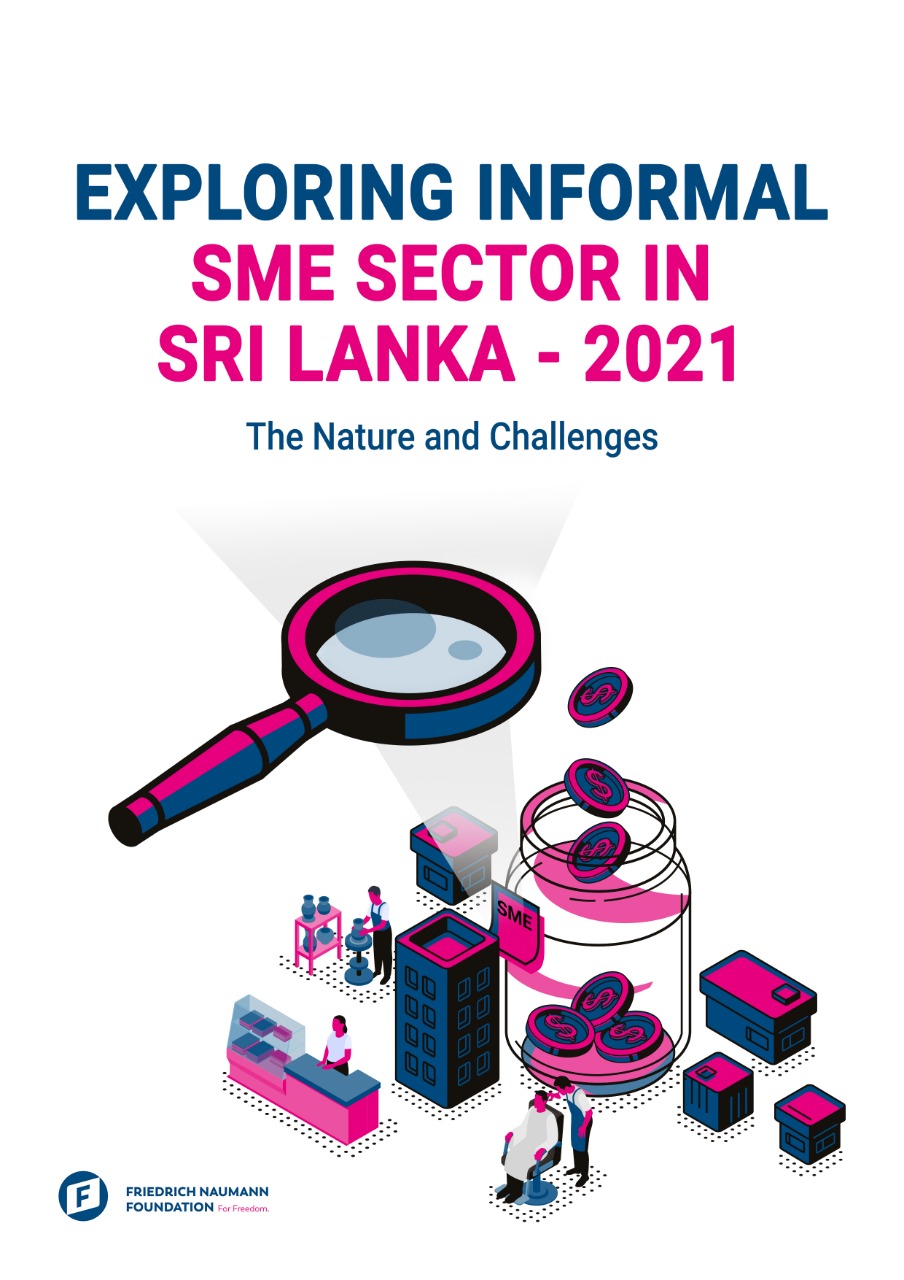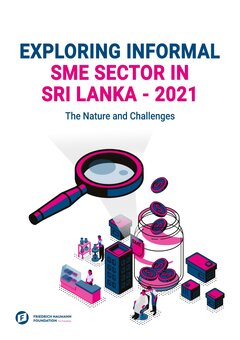Informal Sector
Exploring Informal Small and Medium Enterprises in Sri Lanka

Research Publication
SMEs significantly contribute to a nation's economic progress, but this contribution has to be recognized more. Small and medium-sized businesses (SMEs), which make up more than 90% of firms in Sri Lanka, are crucial to the country's socioeconomic development. Various political discussions have constantly cited SMEs as sources of innovation and sustained economic growth. Through targeted aid mechanisms intended to promote the role of formal and informal SMEs in the Sri Lankan economy, several promises have been made to improve SMEs' status and capacities. However, lack of funding, inadequate infrastructure, an SME database, a lack of monitoring mechanisms, and a lack of a well-integrated SME authority (one-stop-shop) established by the government became significant constraints of the SME sector in Sri Lanka. SMEs operate in both the formal and informal economies in Sri Lanka. Indeed, the evidence proves that the informal and formal enterprises differentiated in capitalization, market penetration, labor utilization, and organization. However, some argue that informal firms habitually move upward in a hierarchy of organizational forms and finally set up a formal sector unit through vertical linkages. The markets, products, technology, organizational environment, and other vertical integrations are the linkages moving from informal to the formal enterprise.
In Sri Lanka, the informal SME is defined as all unregistered firms with the registration office, municipality, or tax authority, or owners and employers of microenterprises that employ few paid workers. However, many scholarly works and publications have commonly discussed the characteristics of the SME sector in Sri Lanka without addressing the distinctions between the official and informal sectors and their respective traits, difficulties, and nature. As a result, there is a knowledge gap when analysing the informal SME sector's role in economic growth and its makeup. It has been informed that no prior research has addressed the need to investigate the informal SME sector and its distinctive characteristics, situational concerns, and obstacles. Therefore, this study focused on researching the business types, the nature, issues, and challenges and providing growth tips to the informal business sector.
This study occupied a mixed research approach, initially targeting 250 respondents. But with the high number of questionnaires distributed, 277 informal businesses responded. The study also occupied 06 focus group discussions to derive the qualitative aspects of this study. Microsoft Excel and Thematic analysis were used in this study to derive the results. Most responders ran food and beverage, apparel, and farming businesses. The results of the types, nature and issues were addressed in quantitative analysis, which is presented in graphical format.
As per the results, the main challenges faced by the informal SME sector in business operations are finding a market, finding a customer base or buyers, and setting. From individual perspectives, the current economic model in Sri Lanka is failing to fulfil the financial and general management autonomy that remains elusive. When it comes to financial challenges, the procedures' complexity, lack of knowledge, and managerial issues must be heard and heeded. With the advent of commercialization, the widespread use of new information technology worldwide can create new business opportunities. However, access to technology and technical literacy became a challenge to the informal businesses in Sri Lanka.
One of the major findings of this survey was that most business owners were unaware of the legal requirements for registering a business. Another factor is the complexity of the registration process; it’s a costly and time-consuming fact that even business owners dislike paying attention to. In addition, many business owners say they are unaware they need to register their businesses. That indicates the insufficient education and awareness created by the respective government organizations.
The informal business sector must be provided with training programmes on IT, Finance Management, Legal procedures, Marketing, Understanding the consumer and Sustainable methods of doing business. Implementing well-customized programmes in these areas will overcome the highlighted issues of this study.
Dr Kalpana Ambepitiya
